Top 10 AI Intelligent Document Processing Tools for HR in 2025

Upgrade Your HR Document Processing with AI
HR teams waste 40% of their workday on paperwork. That's 16 hours every week spent on mind-numbing data entry instead of building company culture or developing talent.
AI document processing tools have changed the game in 2025. They handle everything from scanning resumes to updating policy handbooks—all with minimal human input. The best HR teams now automate these routine tasks, letting them focus on what matters: people.
Here are the top 10 AI document tools that are transforming HR operations this year:
- MeasureOne: Verifies employment and education documents with AI and rule-based logic.
- Brightmine Automated Handbook Management: Automates HR handbook and policy updates.
- Peoplebox.ai: Streamlines resume screening and candidate shortlisting.
- Textio: Analyzes job descriptions for bias, ensuring inclusive hiring.
- Astera: Accelerates document processing with high accuracy for HR tasks.
- Nanonets: Processes semi-structured HR documents like forms and contracts.
- UiPath Document Understanding: Automates HR document workflows within RPA.
- Rossum: Handles structured HR documents like payroll and benefits forms.
- ABBYY: Processes high-volume, multilingual HR documents for enterprises.
- Google Document AI: Extracts data from HR documents within Google's ecosystem.
Comprehensive Guide to AI-Powered IDP Tools for HR in 2025
1. MeasureOne
Reliable and Accurate Document Processing Automation
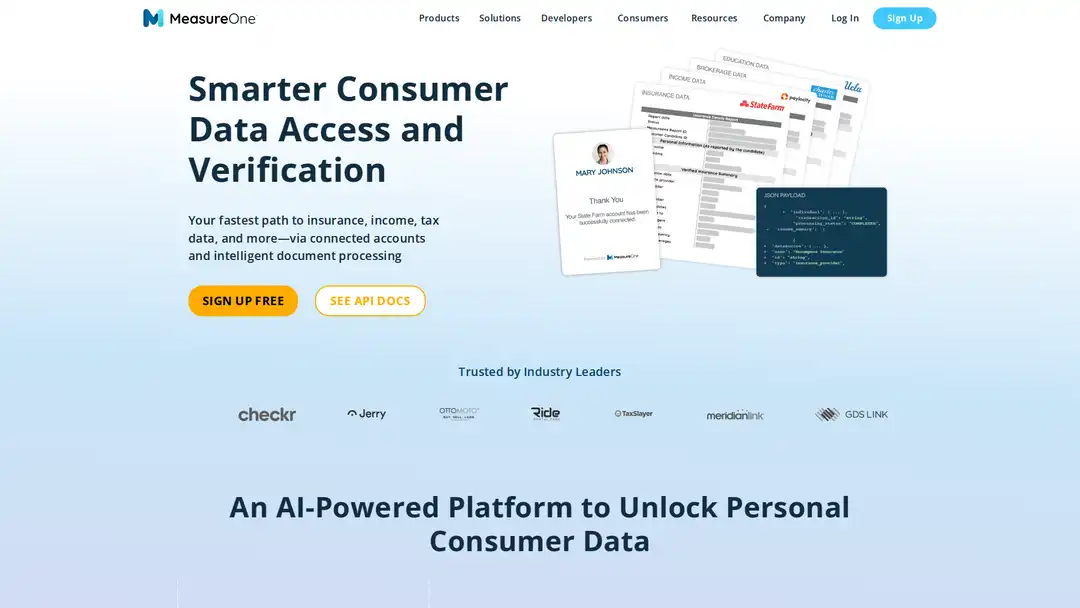
MeasureOne combines AI with deterministic processes for reliable, accurate, and scalable document processing automation. It is particularly effective for HR departments to verify documents like employment and education history, ensuring compliance and efficiency in hiring and onboarding processes.
Key Features:
- Hybrid approach (AI-driven and rule-based logic)
- Fraud detection
- Identity validation
- Seamless integration
- Proven business impact (faster processing, lower error rates, reduced costs)
Pricing: First 14 days free; contact for pricing
Best For: Verifying employment and education history documents
2. Brightmine Automated Handbook Management
AI-Powered Handbook and Policy Management
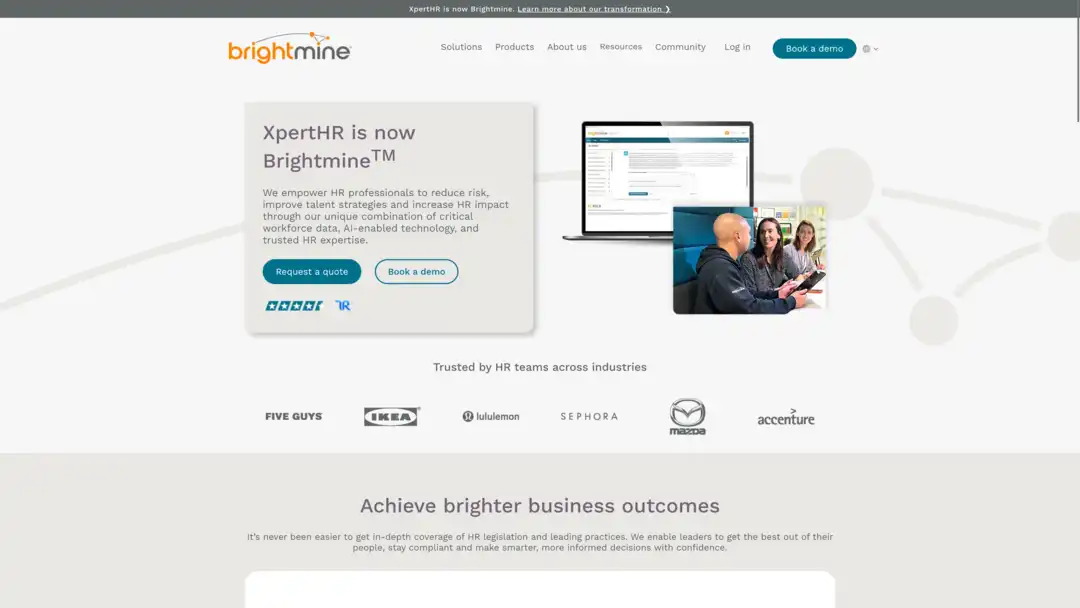
Brightmine Automated Handbook Management is an AI-powered system that automates the creation and updating of employee handbooks and policies. It ensures HR compliance by analyzing documents, identifying gaps, and providing actionable recommendations.
Key Features:
- Analyzes handbooks and identifies missing policies
- Provides recommendations and compliance alerts
- Automates handbook building and updating process
Pricing: Contact for pricing
Best For: Handbook and policy management for HR
3. Peoplebox.ai
AI-Driven Resume Screening and Candidate Shortlisting
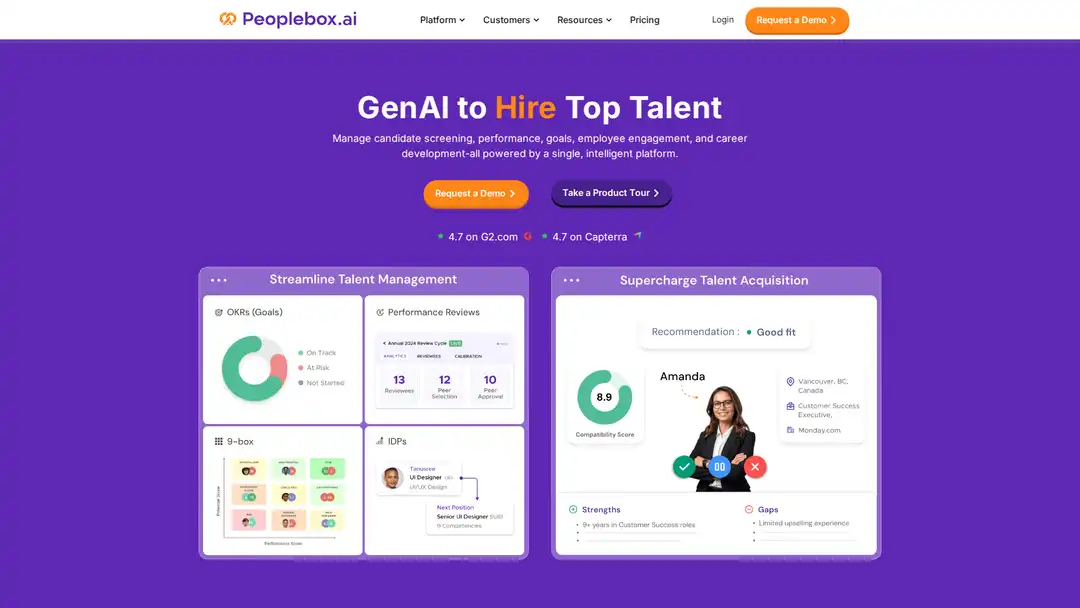
Peoplebox.ai uses AI to automate resume screening and candidate shortlisting based on skills, experience, and cultural fit. It streamlines the hiring process, making it easier for HR teams to identify top talent efficiently.
Key Features:
- AI Resume Screening
- Candidate Shortlisting
- AI-Driven Feedback
- Pulse Surveys
- Performance Feedback & Reporting
Pricing: Contact for demo; pricing not specified
Best For: Hiring, employee engagement, and performance management
4. Textio
Bias-Free Hiring through AI-Powered Language Analysis
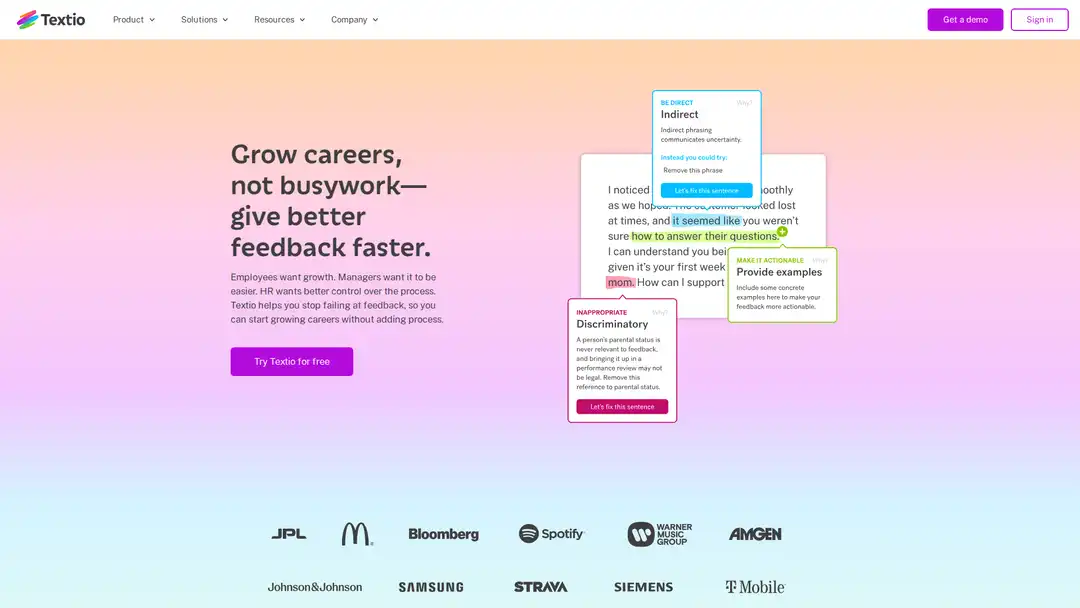
Textio employs AI to analyze job descriptions for biased language and suggests inclusive alternatives. It helps HR teams create equitable hiring practices, enhancing diversity in candidate pools.
Key Features:
- AI-powered language analysis
- Bias detection
- Inclusive job posting suggestions
Pricing: Custom pricing
Best For: Bias-free hiring
5. Astera
Highly Accurate and Efficient Document Processing
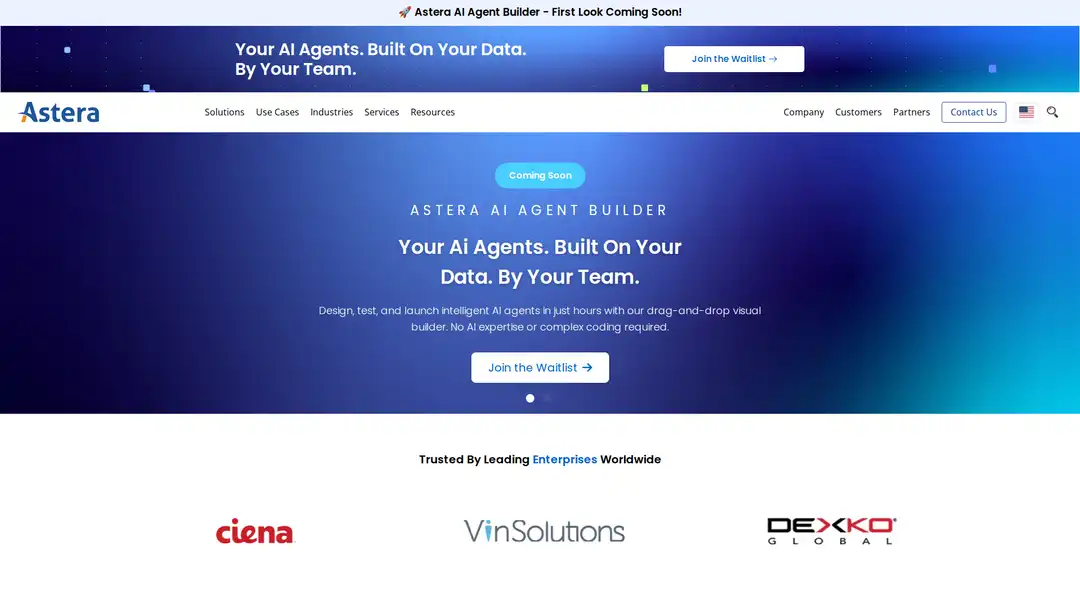
Astera is a leading IDP platform that accelerates document processing by 8x, data extraction by 90%, and data preparation by 90%, while reducing errors by 97%. It is ideal for HR departments handling employee contracts, forms, and other documents with high accuracy.
Key Features:
- No templates needed
- Single workflow for all documents
- Extracts from various formats
- AI searches
- Customizable prompts
- Built-in OCR
- Data integrity
- Seamless DMS integration
Pricing: Contact for pricing
Best For: High-accuracy document processing for HR
6. Nanonets
AI-Powered Document Processing for Semi-Structured Documents
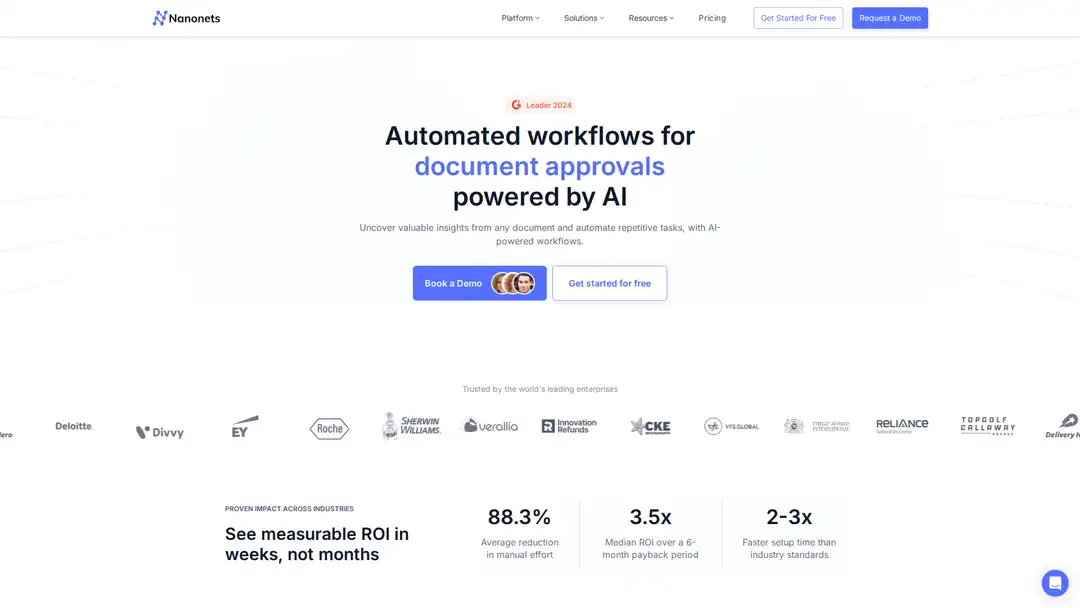
Nanonets is an AI-powered IDP tool that excels at processing semi-structured documents, such as employee forms and contracts, commonly used in HR. Its flexibility and scalability make it a strong choice for HR document workflows.
Key Features:
- Extracts, classifies, and processes data from various document types
- Optimized for semi-structured documents
- Pay-as-you-go pricing model
Pricing: Pay as you go; contact for higher-volume pricing
Best For: Processing employee forms and contracts
7. UiPath Document Understanding
AI-Driven Document Processing within RPA Platform
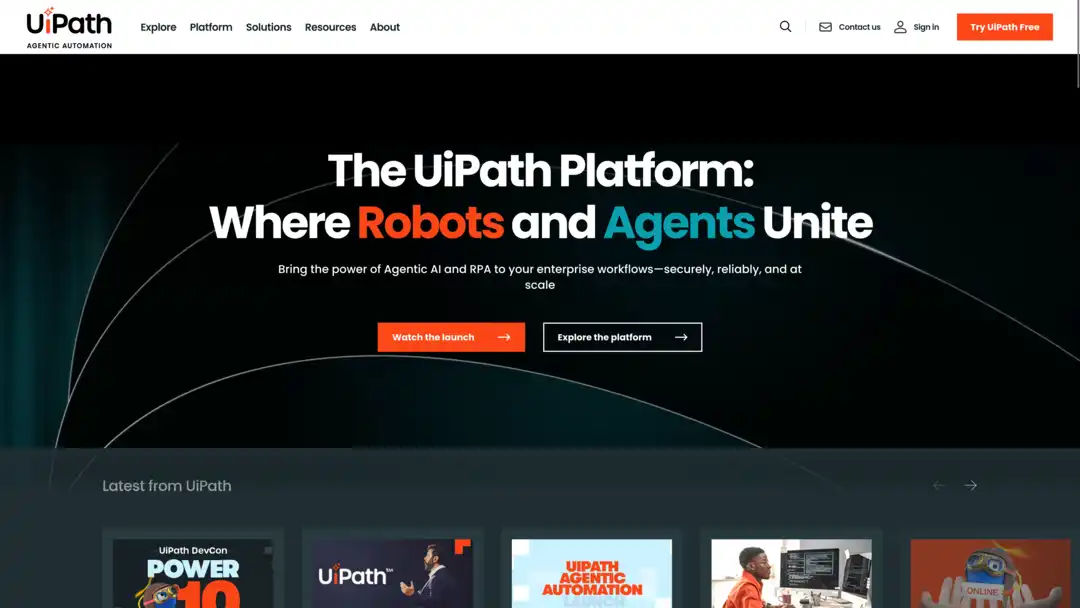
UiPath Document Understanding, part of UiPath's RPA platform, uses AI to extract, interpret, and process document data. It is suitable for HR departments automating document-heavy workflows, such as onboarding or offboarding.
Key Features:
- Multiple IDP features
- Integrates with RPA for workflow automation
- Complex setup with a steep learning curve
- Lower accuracy with unstructured documents
Pricing: Contact for pricing; Pro version unclear if includes Document Understanding
Best For: Technical HR teams automating workflows
8. Rossum
AI Platform for Automating Data Entry from Structured Documents
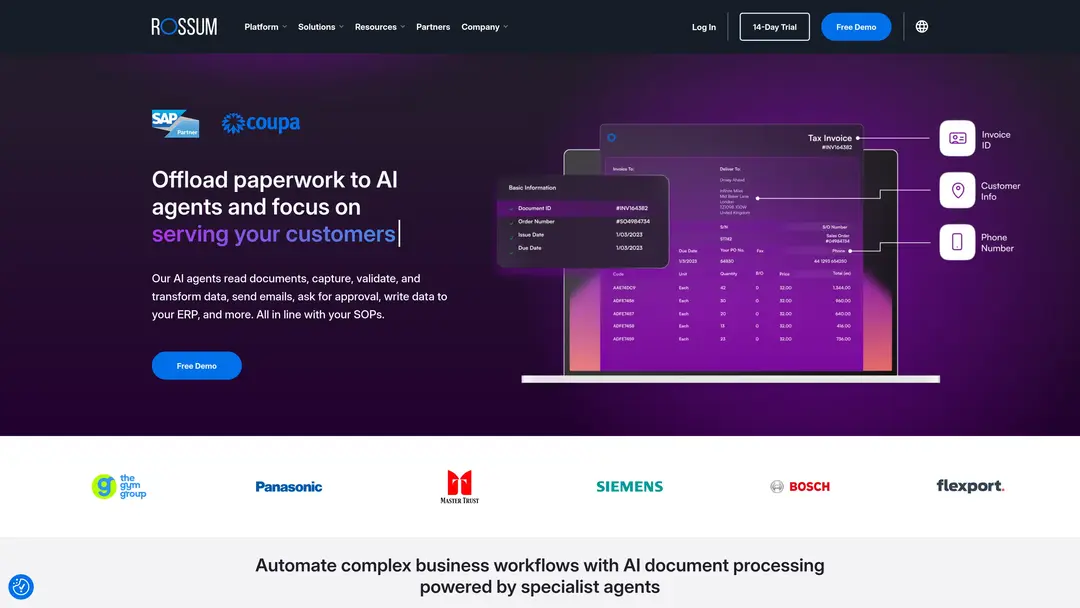
Rossum automates data entry and enhances productivity, particularly for structured documents like payroll records and benefits forms. It is well-suited for HR departments needing efficient processing of standardized documents.
Key Features:
- Easy to use for structured documents
- Automates data entry
- Expensive and complex setup
- Language restrictions
Pricing: Starter tier USD 18k/year; others quote-based
Best For: Processing payroll and benefits documents
9. ABBYY
Enterprise-Level Document Processing with Multilingual Support
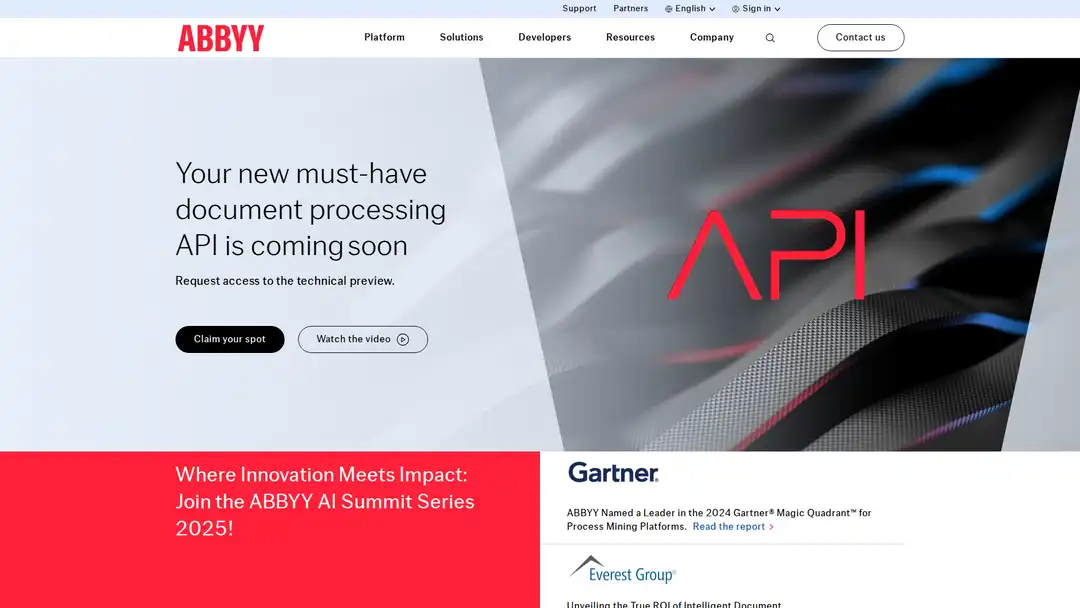
ABBYY Vantage is designed for enterprises, supporting 9 languages for NLP and integrating with existing systems. It handles high document volumes, making it ideal for large HR departments with diverse document needs.
Key Features:
- Processes high document volumes
- Supports multiple languages
- Integrates with existing systems
- Handwritten text accuracy needs improvement
- Requires training
Pricing: Pricing on demand
Best For: Large HR departments with multilingual needs
10. Google Document AI
Generative AI for Processing Structured and Unstructured Documents
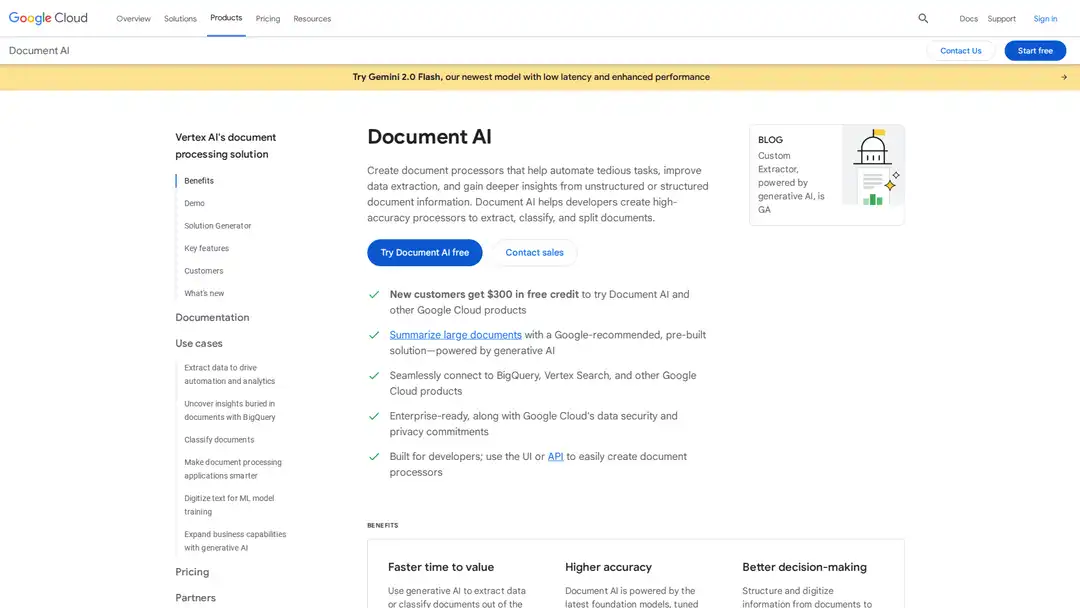
Google Document AI uses generative AI to extract data from structured and unstructured documents, integrating seamlessly with Google services. It is suitable for HR departments within Google's ecosystem for processing employee records and other documents.
Key Features:
- Extracts from structured and unstructured documents
- Integrates with Google services
- Flexible pricing based on usage
- Costs can escalate with high usage
- Minimal multilingual support
- Requires manual intervention
Pricing: Comprehensive pricing based on usage
Best For: HR departments using Google services
Visit Google Document AI website
Why These AI document management Tools Were Chosen
These tools were selected based on their advanced AI capabilities, HR-specific features, positive user reviews, and seamless integration with existing HR systems. They address a range of HR needs, from document verification and compliance to resume screening and inclusive hiring.
Benefits for HR
- Efficiency: Automates repetitive tasks like data entry and document verification, saving time for HR teams.
- Accuracy: Reduces errors in document processing, ensuring reliable data for compliance and decision-making.
- Compliance: Tools like Brightmine and MeasureOne help maintain regulatory compliance by identifying policy gaps and verifying documents.
- Scalability: Enterprise-grade tools like ABBYY and Google Document AI handle high document volumes, suitable for large organizations.
- Inclusivity: Textio promotes equitable hiring by eliminating bias in job descriptions.
Limitations
- Pricing Transparency: Many tools, such as Astera, UiPath, and ABBYY, require contacting vendors for pricing, making cost comparisons challenging.
- Customization Needs: General IDP tools may require configuration to align with HR-specific workflows, potentially increasing setup time.
- Learning Curve: Tools like UiPath have complex setups, which may be a barrier for non-technical HR teams.
- Language Support: Some tools, like Rossum, have language restrictions, limiting their use in multilingual HR environments.
Choosing the Right IDP Tool
Picking the perfect tool depends on your HR team's unique needs:
- Team Size: Small HR teams might prefer Nanonets or Peoplebox.ai, while larger departments could benefit from ABBYY or Google Document AI.
- Budget: Options range from pay-as-you-go (Nanonets) to enterprise pricing (ABBYY).
- Needs: Prioritize compliance (Brightmine), hiring (Textio, Peoplebox.ai), or high-volume processing (Astera, ABBYY).
- Integration: Choose MeasureOne or UiPath for seamless system integration.
Most tools offer demos or trials—test them to find the best fit for your HR workflow.
AI IDP Tool Comparison
| Tool | Key Features | Pricing |
|---|---|---|
| MeasureOne | Hybrid AI and rule-based logic, fraud detection, identity validation | First 14 days free; contact for pricing |
| Brightmine Automated Handbook Management | Analyzes handbooks, compliance alerts, policy recommendations | Contact for pricing |
| Peoplebox.ai | AI resume screening, candidate shortlisting, pulse surveys | Contact for demo; pricing not specified |
| Textio | AI language analysis, bias detection, inclusive suggestions | Custom pricing |
| Astera | No templates, single workflow, built-in OCR, seamless DMS integration | Contact for pricing |
| Nanonets | Extracts and classifies data, optimized for semi-structured documents | Pay as you go; contact for high volume |
| UiPath Document Understanding | RPA integration, multiple IDP features, complex setup | Contact for pricing |
| Rossum | Automates data entry, easy for structured documents, language restrictions | Starter tier USD 18k/year; quote-based |
| ABBYY | Multilingual support, high-volume processing, system integration | Pricing on demand |
| Google Document AI | Generative AI, Google service integration, flexible pricing | Usage-based pricing |
Is AI document processing right for your HR team?
Your HR team shouldn't spend half their workday shuffling papers. These AI tools slash manual processing time by 40-90%, letting your HR pros focus on strategy and people—not paperwork.
The right tool depends on your needs. Small teams might love Nanonets' pay-as-you-go model, while enterprise HR departments can handle thousands of multilingual documents with ABBYY. Compliance-focused teams will benefit from Brightmine's policy management, while those battling bias should check out Textio.
One thing's clear: AI document processing isn't just a luxury for HR anymore—it's becoming standard practice for teams that want to stay competitive. Try a demo, start small with one document type, and watch your HR team transform from paper-pushers to strategic partners.